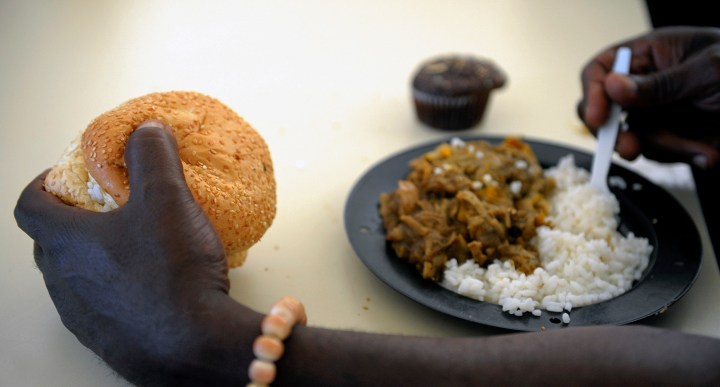
FOOD INSECURITY
Women and girls bear the brunt of undernutrition, international conference told

‘We can’t talk about food without talking about current political economies and people’s struggle with the right to choice and access to food,’ says Professor Desiree Lewis, principal researcher of the Critical Food Studies programme.
On 17-19 November, Critical Food Studies, with the universities of the Western Cape, Pretoria and KwaZulu-Natal hosted a virtual conference on innovative humanities-driven conversations about food security studies and how people interact with food.
The platform brought together food scholars, artists and activists from across the globe to discuss food in social history and how the cultural, social and political journeys of food are connected.
The discussions looked at people’s relationships with food and how these relationships have evolved from ancient times.
Haidee Swanby, Nomonde Buthelezi and Sanelisiwe Nyaba of Food Agency Cape Town (FACT, a civil society organisation that uses food as an entry point to address social ills) argued that household food insecurity is shaped by intersectionality, which affects the roles women play in the food system.
Ayanda Tshazi, PhD candidate and researcher from the University of KZN said women bear a disproportionate burden of food insecurity. “Food is sexualised as pertaining to girls and young women. It is problematic because it results in the constant policing from pre-puberty to the disproportionate burden of poverty in womanhood.”
Tshazi said food is used to police what girls eat, while boys receive the best and bigger portions, causing gender differences in eating habits, nutritional behaviour and weight.
A study by the Inter-Agency Standing Committee (IASC), an inter-agency forum of UN and other humanitarian partners, confirms this and has found that:
- In a crisis where food is in short supply, women and girls are more likely to reduce their food intake as a coping strategy in favour of other household members, which contributes to under-nutrition;
- Because of social traditions, men and boys may be favoured and fed better than women and girls;
- Women face constraints in accessing food, as a result of insecurity, cultural discrimination and limited mobility.
Those attending the conference agreed that food should be de-stigmatised through political discourse that involves women.
Desiree Lewis, a professor in gender studies at the University of the Western Cape (UWC) and convenor of the conference, suggested that there is a need to naturalise how we talk about food. “Food [in]security is not a fact, not an objective condition, but it is a discursive framework. The current discourses and language around food have to be interrogated and challenged, and most certainly concerning race, class, gender and power. We can’t talk about food without talking about current political economies and ‘people’s struggle’ with the right to choice and access to food.”
Simon Masiga, a scholar from Uganda Christian University (UCU), said that for the discussion on food to be more effective, ethical behaviours and practices that promote sustainability and conservation are necessary.
“A form of knowledge production allows those in power to appropriate, exoticise, reduce and take ownership of the food narratives of more marginalised communities. We need to rethink food beyond a mainstream format but rather disruptive ways that allow for complex understandings and adaptations while remembering the unwritten people’s heritage,” Masiga said. DM/MC


















 Become an Insider
Become an Insider
Comments - Please login in order to comment.